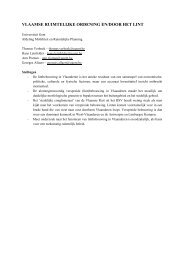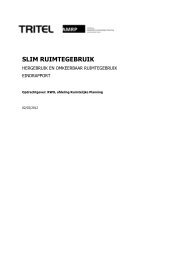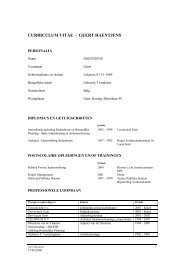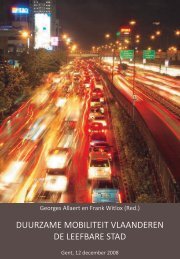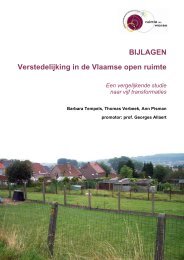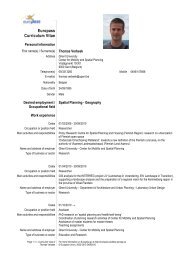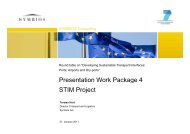third international conference on climate change
third international conference on climate change
third international conference on climate change
Create successful ePaper yourself
Turn your PDF publications into a flip-book with our unique Google optimized e-Paper software.
HUMAN IMPACTS<br />
Third Internati<strong>on</strong>al C<strong>on</strong>ference <strong>on</strong> Climate Change<br />
Humans are agents in <strong>climate</strong> <strong>change</strong> due to their producti<strong>on</strong> of greenhouse gases and their patterns of land use.<br />
Humans will also be affected by <strong>climate</strong> <strong>change</strong> in many ways: including shifting shorelines, declining agricultural<br />
productivity, crisis of food supply, availability of water, the health of populati<strong>on</strong>s and extreme weather events. For instance,<br />
envir<strong>on</strong>ment related diseases could spread rapidly in epidemic proporti<strong>on</strong>s with <strong>change</strong>s in water availability and quality.<br />
These impacts will be felt differentially in developed and developing worlds. Marginalized populati<strong>on</strong>s of people may not<br />
<strong>on</strong>ly have their lives and livelihoods affected, but also be affected by declines in species abundance and diversity of<br />
ecosystems at a landscape level and up<strong>on</strong> which they are dependant. In heterogeneous landscapes with a mix of<br />
wilderness islands within a changing agricultural envir<strong>on</strong>ment, urbanizati<strong>on</strong> and industrial spread could well increase<br />
pressures <strong>on</strong> protected area networks as the effects of climatic <strong>change</strong>s increase. Agricultural communities, especially<br />
traditi<strong>on</strong>al farmers and pastoralists, may be forced to shift into what is now within the protected area networks in developing<br />
countries.<br />
FRAMING RESPONSES<br />
This peculiar creature in natural history, homo sapiens, is increasingly being recognized to an agent of <strong>climate</strong> <strong>change</strong>,<br />
though the precise mix of natural and human causes has yet to be determined. With c<strong>on</strong>scious agency comes resp<strong>on</strong>sibility<br />
for the future course of natural history.<br />
On the experience of the past hundred thousand years, humans are clearly capable of adaptive resp<strong>on</strong>ses, nurturing nature<br />
though a period of transiti<strong>on</strong>, creating corridors to assist species adaptati<strong>on</strong> and inventing new agricultures which alleviate<br />
and mitigate the effects of <strong>climate</strong>, for instance. Humans are also capable of precauti<strong>on</strong>ary acti<strong>on</strong>, reducing greenhouse<br />
gases for instance as part of a broader strategy of sustainable development.<br />
The key, however, will be the extent to which our species can take a proactive role, be that technological (carb<strong>on</strong><br />
sequestrati<strong>on</strong> and other technologies) or acts of social and political will that produce <strong>change</strong>d patterns of land and energy<br />
use. Like no other creature in natural history, and like no other time in this creature‘s human history, this is moment when<br />
the future of the planet is in our hands. The c<strong>on</strong>sciousness which made us a unique species perhaps a hundred thousand<br />
years ago, for the first time today puts us in a positi<strong>on</strong> of unprecedented resp<strong>on</strong>sibility for the course of natural history.<br />
Climate <strong>change</strong> is a key intellectual and practical challenge for today‘s science, ec<strong>on</strong>omics, politics, sociology and ethics.<br />
7





